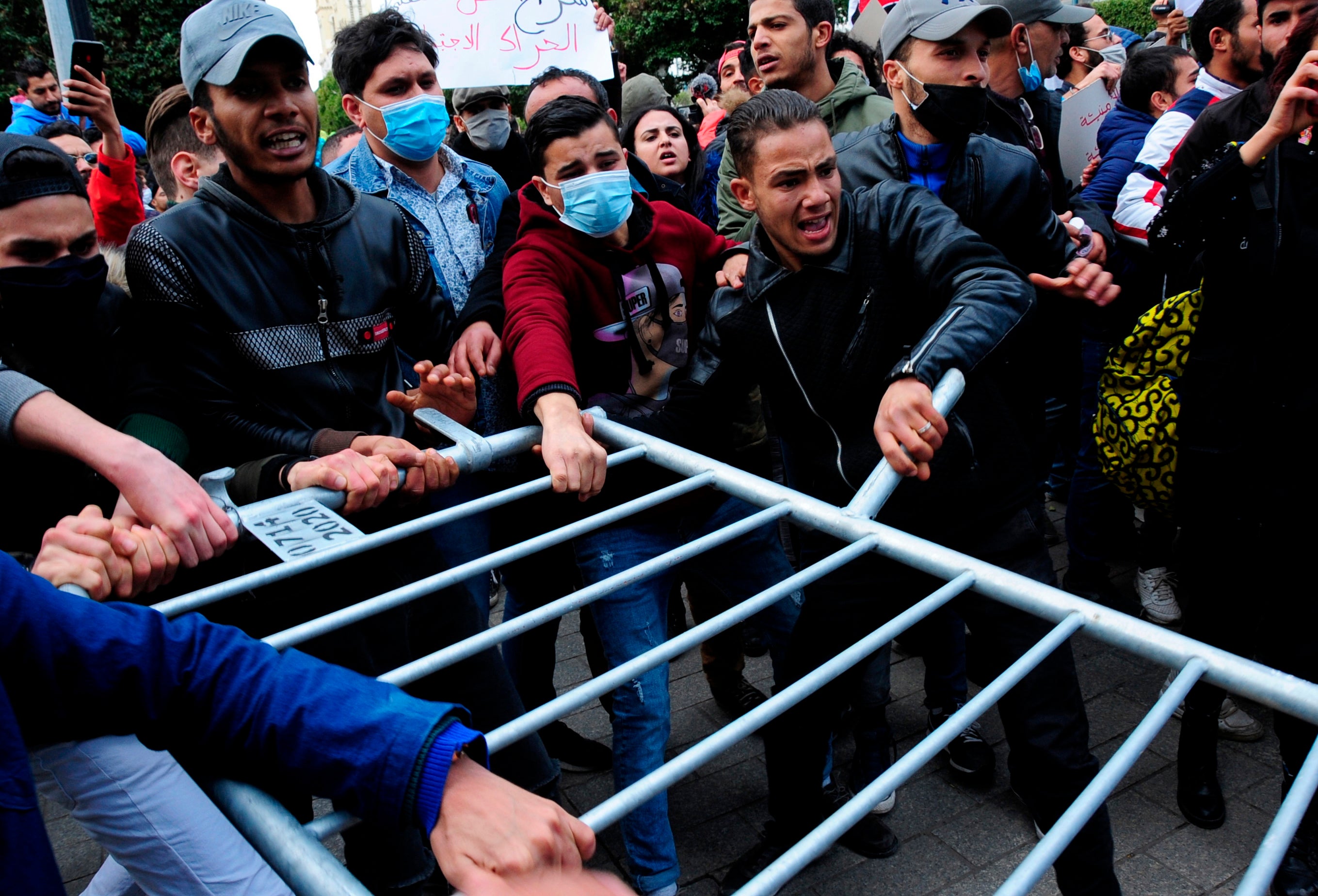Tunisians protest arrests; government faces confidence vote
Tunisian activists are marching on parliament Tuesday as lawmakers vote on a new government, following a week of national tensions over poverty and lack of jobs

Your support helps us to tell the story
From reproductive rights to climate change to Big Tech, The Independent is on the ground when the story is developing. Whether it's investigating the financials of Elon Musk's pro-Trump PAC or producing our latest documentary, 'The A Word', which shines a light on the American women fighting for reproductive rights, we know how important it is to parse out the facts from the messaging.
At such a critical moment in US history, we need reporters on the ground. Your donation allows us to keep sending journalists to speak to both sides of the story.
The Independent is trusted by Americans across the entire political spectrum. And unlike many other quality news outlets, we choose not to lock Americans out of our reporting and analysis with paywalls. We believe quality journalism should be available to everyone, paid for by those who can afford it.
Your support makes all the difference.Tunisians are marching on their heavily guarded parliament Tuesday as lawmakers vote on a new government, after a week of youth protests and riots over poverty and lack of jobs that left one young demonstrator dead and hundreds jailed.
Prime Minister Hichem Mechichi announced a government reshuffle last week in the midst of the unrest. He promised Tuesday that the new team would concentrate on deep reforms to create jobs and improve living conditions in the North African country, which has been mired in economic crisis deepened by the coronavirus pandemic.
But four of his 11 proposed new Cabinet members are facing investigations or suspicions of corruption, which threatens to further undermine Tunisians’ faith in a leadership accused of failing to live up to the promises of the country’s democratic revolution 10 years ago that unleashed the Arab Spring.
Security was so tight in the streets around the parliament building Tuesday that several lawmakers were unable to access the grounds, according to independent parliamentary deputy Mabrouk Korchid.
More than two dozen human rights and other groups called for a march Tuesday afternoon through central Tunis to the parliament building to demand the release of hundreds of people arrested in this month’s unrest and denounce repressive measures by police.
A protester in his 20s died in a hospital Monday in the first apparent fatality amid the unrest, prompting a new outpouring of anger in his hometown of Sbeitla that the army was sent in to quell. His family said he was hit in the head by a tear gas canister during a protest, according to the state news agency. The Interior Ministry said an investigation has been opened.
In the parliamentary debate, legislator Ali Hermassi denounced the failure of four successive governments to improve the economy, noting that unemployment has risen, as has inflation, while investment has fallen. He also deplored the handling of the recent protests.
“The country needs political and social stability to emerge from the crisis,” he said.
The head of one faction, Souhair Maghzaoui, told the prime minister: “If you intend to return to police repression, you are deluding yourself,” referring to heavy-handed tactics under the authoritarian regime thrown out by Tunisia’s 2010-2011 uprising.
Meanwhile, President Kais Saied said the government reshuffle is unconstitutional, because the prime minister didn’t follow the procedures for informing the president first.
“The Presidency of the Republic is not a mail box that signs decrees and organizes oath-taking ceremonies,” Saied told a security council meeting. He also questioned the wisdom of naming the four proposed ministers who are suspected of conflict of interest or embezzlement.
I-Watch, the Tunisian arm of anti-corruption group Transparency International, sent a letter to lawmakers urging them not to approve the four proposed ministers.
The president also criticized the reduction of the number of women in the new government from six to four. “Women are not cosmetic powder” but crucial players in the government, he argued.
The confidence vote is scheduled at the end of the day, with lawmakers voting on the new members of the government one-by-one.